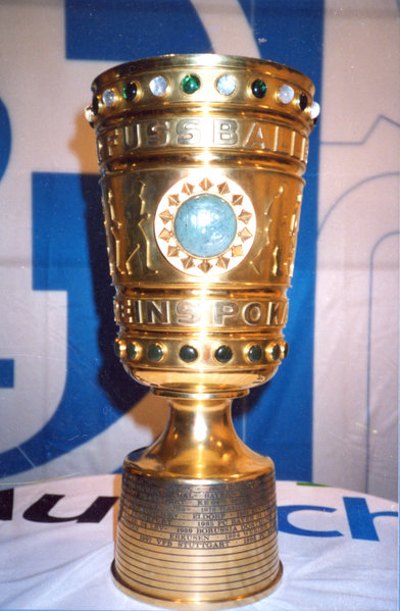2. Bundesliga Stadiums & Stats

Soccerates [GFDL or CC-BY-SA-3.0]
There are three full professional leagues in the German football pyramid, with the German Football Association being the national governing body.
The top-flight is the most famous and is called the Bundesliga. The second-tier division is 2. Bundesliga and, much like its better known older sibling, is organised by the German Football League.
Below that is 3. Liga, which is controlled by the German Football Association.
All of the clubs who play in 2. Bundesliga qualify for the annual German Cup competition which is named the DFB Pokal, and is considered the 2nd most important club trophy in German football.
Here we’ll tell you a little bit more about the structure of 2. Bundesliga as well as the history of the league and the sort of stadiums you’ll find if you decide to go and watch some second division football in Germany.
Stadium Stats
| Stadium | Year Opened | Capacity | Ave Attendance | Record Attendance | Record Attendance Match |
|---|---|---|---|---|---|
|
Merkur Spiel-Arena
Fortuna Düsseldorf |
2004 | 54600 | 44339 | Unknown | |
|
Olympiastadion Berlin
Hertha Berlin |
1936 | 74475 | 50267 | 88075 | Hertha Berlin v 1 FC Köln (1969) |
|
Veltins-Arena
FC Schalke 04 |
2001 | 62271 | 61386 | 77803 | Germany v United States Ice Hockey 2010 |
|
Volksparkstadion
Hamburg SV |
2000 | 57000 | 53700 | 57000 | Hamburg v Bayern Munich (2009) |
Team Stats
| Team | Year Founded | Nickname | Team Owner |
|---|---|---|---|
| FC Schalke 04 | 1904 | Die Königsblauen (The Royal Blues), Die Knappen (The Miners) | Members |
| Fortuna Düsseldorf | 1895 | Flingeraner, Fortunen, Rheinländer | |
| Hamburg SV | 1919 | "Die Rothosen (The Red Shorts) Der Dino (The Dinosaur)" | Club Membership |
| Hertha Berlin | 1892 | Die Alte Dame (The Old Lady) | Lars Windhorst |
2. Bundesliga Stadiums
As is the case with most European countries, football is easily the most popular sport in Germany. The combination of cheap match tickets and the fact that German stadiums can have safe standing sections means that the Bundesliga itself enjoys one of the highest attendances of any league in Europe. This tends to trickle down to 2. Bundesliga as well, so the grounds in the second-tier of German football are almost as impressive as their more successful counterparts.

User:Mattes [CC BY-SA 3.0], from Wikimedia Commons
The movement of teams from one league to another, as well as the fact that some teams (such as 1860 München and Bayern Munich) share stadiums means that there are a number of stadiums with very large capacities. The Allianz Arena, for example, can house up to 75,000 people and the Mercedes-Benz Arena in Stuttgart can welcome over 60,000. Meanwhile, there are also some smaller grounds with capacities at around the 10,000 mark.
About The League

Bigstock
Eighteen teams play in 2. Bundesliga, with over 125 having played in it since its inception. Teams in the league play each other twice in a round-robin format. Winning a match results in a team being awarded three points, losing gets nothing, and if a match is drawn then both sides get given a point each.
Since 2008-2009 the top two teams in the league at the end of the season are promoted automatically and the third placed team enters a playoff with the team that finished sixteenth in the Bundesliga. Equally the bottom two teams are relegated automatically and the team that finishes third from bottom enters a two-lidded playoff with the third placed team from 3. Liga.
2. Bundesliga History

Medvedev [CC BY-SA 3.0], from Wikimedia Commons
The league was first established in 1974, with the decision to create it having been agreed upon the year before. Initially there were two divisions with twenty clubs in each but this was reduced to just one league in 1981. When Germany was re-unified the teams from East Germany began participating in the league and it briefly had to return to the old structure of two separate divisions. It returned to one league from 1992 and has had eighteen participating clubs since 1994.
The most successful club in the history of 2. Bundesliga is 1. FC Nürnberg. They hold the joint record number of championship wins (four) alongside SC Freiburg, FC Köln, and Arminia Bielefeld, and have also been promoted to the Bundesliga more times than any other club. They’ve achieved that feat on seven different occasions. Of course, this also means that they keep getting relegated, too, so success is relative we suppose.
